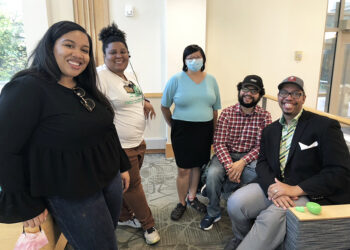Recent studies found when health care providers or doctors enter notes into patients’ records. They are more likely to describe Black patients negatively.
In February, a study from the University of Chicago analyzed 40,000 hospital notes from 18,459 patients for sentences containing a negative descriptor.
Words like “agitated” or “nonadherent” are negative descriptors often used to describe Black patients in notes 2.54 times more than in white patients’ notes, according to the study.
In January, a similar study published by JAMA Network Open aimed to answer the question, “How frequently does stigmatizing language appear in the admission notes of hospitalized patients, and does the frequency vary by patients’ medical conditions and race or ethnicity?
Researchers reviewed over 48,000 admission notes and noticed that 2.5% of all notes included stigmatizing language.
“Across all medical conditions studied, stigmatizing language appeared more frequently in notes written about non-Hispanic Black patients,” the study found.
Mary Catherine Beach, a professor at Johns Hopkins University School of Medicine and the Johns Hopkins Bloomberg School of Public Health, led a 2021 study. She and her team found “words such as ‘claims,’ ‘insists,’ and ‘apparently’ were more likely to appear in the medical records of Black patients.”
The language in these notes can influence how health care professionals perceive patients.
“These words may be stigmatizing even if they do not reflect individual bias on the part of the clinicians who write them,” Beach said.
Related Story: South Africa’s Oldest Language Is Fighting To Survive
These studies appear to be the first to quantify racial bias in U.S. health record notes. Bias can drive health disparities.
These studies found that stigmatizing language in medical notes promotes medical racism, and healthcare professionals can benefit from training to eliminate this language and promote health equity.
“As a profession, we need to think carefully,” Beach said, and choose words that “reduce blame and recognize the complexity and injustice inherent in our system.









